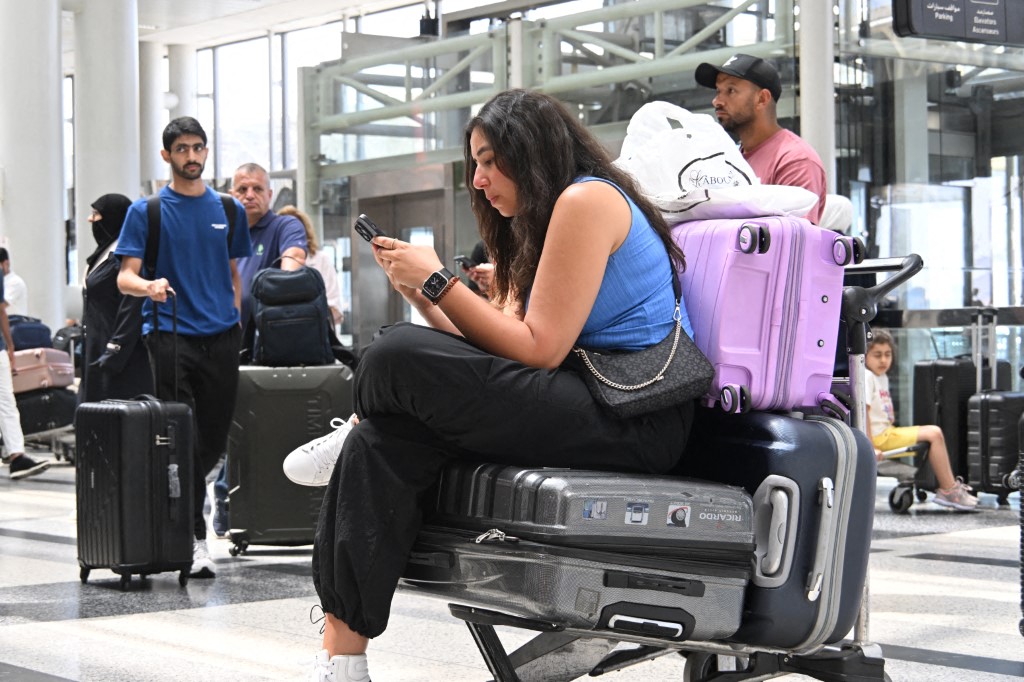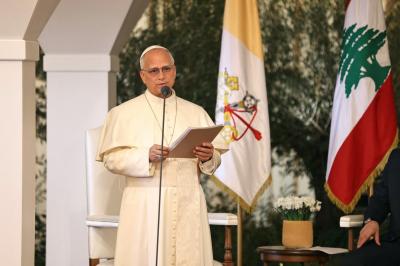After more than a decade of price chaos, Lebanon’s Ministry of Public Works and Transport has launched a campaign to regulate taxi fares from Beirut–Rafic Hariri International Airport to various destinations across the country. The long-overdue move aims to rein in years of disorder in this vital sector and was announced under two telling slogans: “From now on… the price is clear” and “Airport Taxi… Not a Price Gamble!” — a direct message to both passengers and drivers that the era of arbitrary fares is over.
So, what does the new fare structure look like?
According to the Ministry’s official statement, the new pricing is now denominated in U.S. dollars or the equivalent in Lebanese lira based on the parallel market rate. Legal action will be taken against drivers who violate the established fares. To increase transparency, a QR code is now posted throughout the airport and on official brochures, allowing travelers to access a detailed fare chart.
Some of the new official rates include:
- $18 to Beirut
- $43 to Jbeil
- $57 to Tripoli
- $49 to Sidon
- $60 to Tyre
- $27 to Aley
A necessary—but overdue—reform
Transport expert and engineer Hassan Badran called the decision “necessary but long overdue.” He explained that the absence of regulated fares in recent years opened the door to exploitation, particularly targeting tourists, who often paid multiple times the fair price with no authority to turn to. Badran added that “transparent pricing will restore a degree of professionalism to the sector and improve Lebanon’s image as a tourist destination that welcomes visitors in a civilized manner.”
Pushback from taxi drivers
However, not everyone is on board. Some taxi drivers have voiced frustration, claiming that the new rates are unfair in certain cases — particularly given the soaring costs of fuel, maintenance, and informal taxes.
Abu Rami, a driver operating the Jbeil–Beirut route, said that while the set price seems acceptable in theory, it fails to reflect real-time costs: “If my car breaks down or gas prices spike, I’m left with nothing. Plus, there are drivers who still charge extra without consequences.”
Another driver, Fadi, pointed to the absence of a mechanism for regularly adjusting the fare chart: “We’re not against fixed pricing, but it needs to be flexible and reflect actual conditions like traffic or peak hours. The system acts as if everything is stable — and it clearly isn’t.”
Implementation is key
While the move clearly signals reform, its success depends entirely on effective enforcement. In a country grappling with a deep crisis of trust between citizens and the state, any policy without consistent follow-through is likely to fail. The key question remains: Will travelers have a way to protect their rights if overcharged? And will the ministry establish a fast and reliable complaints system to hold violators accountable?
Ultimately, standardizing taxi fares from Beirut Airport is a long-awaited regulatory step that could meaningfully improve the experience of both visitors and residents, if paired with robust enforcement and regular fare updates. Between official optimism and public skepticism, one truth holds: execution will be the true measure of whether “Airport Taxi” can transform from a frequent source of complaints into a civil and reliable gateway to Lebanon.
Please post your comments on:
[email protected]
 Politics
Politics













